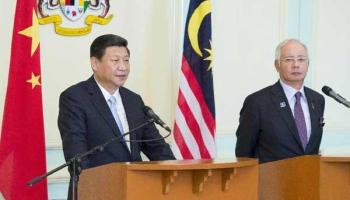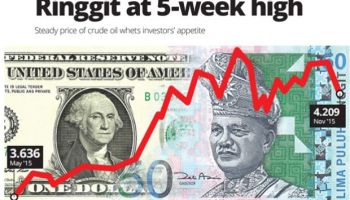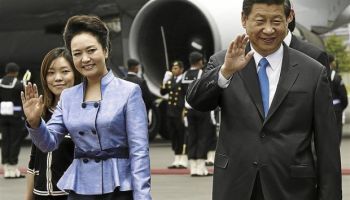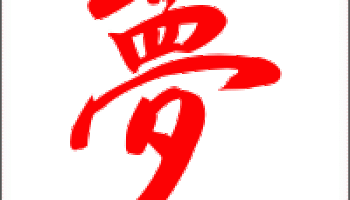https://youtu.be/v87tJF3uO7U
Prime Minister Datuk Seri Najib Razak and China's Premier Li Keqiang inspect honour guards during a welcoming ceremony at the Great Hall of the People, in Beijing, China, November 1, 2016. Reuters
"We have said that bilateral relations are at a historic high. I can say that with confidence.
"But more so, this visit will being it to a new high because the comprehensive nature of our strategic partnership has now been translated into meaningful action," he said in his opening remarks at the bilateral meeting between Malaysia and China at the Great Hall of the People here.
Najib also thanked his counterpart Li Keqiang, seated across from him, for the warm welcome given to the Malaysian delegation.
"It's warm in the room, but outside it's a little cold," Li replied in jest. The weather in Beijing is currently chilly as winter approaches, with a high today of 11.7 degrees Celsius and an overnight low of - 2.2 degrees.
Najib was given earlier given an official welcoming ceremony at the Great Hall of the People here.
Najib, who is on a six-day official visit, was welcomed on arrival by China prime minister Li Keqiang. Also present were ministers and government officials accompanying the prime minister's delegation.
The national anthems of both countries were played, followed by Najib's inspection of the guard accompanied by Li. The Malaysian prime minister was also given a 19-gun salute.
Earlier, Najib had attended the Malaysia-China Business Forum, titled "Strengthening Cooperation, Building Opportunities". The luncheon was attended by more than 400 Chinese and Malaysian businessmen. - New Straits Times
Xi vows to cement all-round strategic partnership with Malaysia
 Chinese President Xi Jinping (R) meets with Malaysian Prime Minister Najib Razak in Beijing, capital of China, Nov. 3, 2016. (Xinhua/Li Xueren)
Chinese President Xi Jinping (R) meets with Malaysian Prime Minister Najib Razak in Beijing, capital of China, Nov. 3, 2016. (Xinhua/Li Xueren)Chinese President Xi Jinping met with Malaysian Prime Minister Najib Razak in Beijing on Thursday, pledging to boost cooperation with the country in diverse areas and cement their all-round strategic partnership.
Xi hailed the progress of relations since diplomatic ties were established 42 years ago, citing mutual respect, trust, win-win cooperation and close communications.
He urged both countries to maintain frequent high-level exchanges, deepen political trust, keep to the right direction of bilateral relations and continue to support each other on issues related to each other's major concerns.
Xi called on the two sides to combine their development strategies, and to lay a solid foundation for stronger trade cooperation.
China welcomes Malaysia's participation in the Belt and Road Initiative, and is ready to work with the country to increase cooperation in areas such as infrastructure, energy, technology, agriculture and finance, he said.
Xi also urged stronger bilateral cooperation in education, culture, health, media, and in fighting terrorism and cross-border crime.
Najib congratulated the successful convening of the sixth plenary session of the 18th Communist Party of China Central Committee last week, and praised China's economic and social development.
It is proven in practice that socialism with Chinese characteristics is a correct choice for China, he said.
Calling the two countries friendly neighbors and trustworthy friends, he said Malaysia-China ties are currently at their highest level.
Malaysia is glad to see China's Belt and Road Initiative get a warm response, he said, vowing to facilitate the cooperation in trade, transportation, and port construction, with China under the Belt and Road framework.
Malaysia is committed to boosting ASEAN-China relations, he added.
Najib is on an official visit to China from Oct. 31 to Nov. 5. Xinhua
Najib’s visit reveals feeble US rebalance
Malaysia has agreed to buy four Chinese naval vessels that operate close to shore, after the country's Prime Minister Najib Razak met with Chinese Premier Li Keqiang early this week. Malaysia usually purchased military equipment from the US and the latest move marks its first significant defense deal with China. Some have called it a "new milestone." The two sides signed 14 agreements worth 231.8 billion yuan ($34.28 billion) on Wednesday, and Najib called it a "historic achievement."
Commentaries speculating that Najib is becoming the "second Duterte" in Southeast Asia and that Malaysia is "another Asian domino falling toward Beijing" have run wild in mainstream Western media. The New York Times contended that "American efforts to contain Chinese ambitions in the South China Sea depend on a ring of allies, but the region's united front may be crumbling."
Najib said in a Chinese media outlet recently that former colonial powers should not "lecture countries they once exploited on how to conduct their own internal affairs today." The tensions between Malaysia and the US brewed by Washington's interference in Malaysia's internal affairs are similar to those between the US and the Philippines caused by the former's accusation against Duterte's human rights abuses during its anti-drug campaign.
The US' sense of superiority in politics and morality often makes it point its fingers at developing countries. In 1993, it forcefully inspected a Chinese freighter suspected by its intelligence service of carrying weapons and ended up finding nothing. It launched attacks on Iraq over its alleged ownership of weapons of mass destruction, but faced the same fate.
Chinese people don't think that Kuala Lumpur is leaning toward Beijing. China and Malaysia are developing their ties steadily. China has been Malaysia's biggest trading partner and replaced the US to become its largest investor in 2015. The two have minor territorial disputes but have managed them well. China's relations with neighboring countries ought to be like this.
Friendly ties between China and Malaysia do not exclude a third party. Defense cooperation, which displays a higher level of strategic mutual trust, should not be labeled as "a turning point for the region."
The fears of US and Western opinion reveals that the US rebalance to the Asia-Pacific is eyeing unrealistic goals, which are to form an alliance system in the West Pacific that includes most countries so as to contain China. The West views China as an expansionist imperial state like Japan used to be in the past, and requires regional countries to be "loyal" to Washington.
The rebalancing strategy does not hold water. China has never thought of military expansion as Japan did. It cherishes peace and stability like all regional stakeholders. China is sincere in tackling territorial disputes through peaceful negotiations. A "nightmare" in the South China Sea is nothing but an illusion created by the US and Japan.
Washington should reflect upon itself. It is an external country and its presence in the region should contribute to peace and stability. It will not stay long if it keeps driving a wedge between regional countries. - Global Times

















